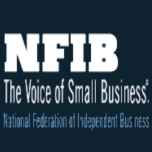Latest News & Events

Net Neutrality: What is it?
Net Neutrality has garnered quite a bit of attention in the press recently and we thought it might be a good idea to look into it more closely and share our own position. The first thing we have to get through is defining what Net Neutrality is. We have our own perspectives and, although reasoned, it only represents what it looks like from our own filters and sources so by all means, this should not be viewed as your definitive source of information of the subject but simply food for thought. Those reservations aside, we believe there are two very different definitions out there and proponents on both sides of the argument are purposely clouding the discussion to make their positions stronger.
The Technical Side
The first definition is a technical one and relates to the ISPs (Consumer Internet Service Providers) and backbone network providers and how these companies share connections to their networks with each other. For many years, and for the first few generations of the internet, these sharing agreements were quid pro quo deals where most agreed to provide access to each other’s traffic and little to no money was exchanged. As the networks, content and user demands have evolved, the need for massive increases in capacity have risen as well. This need for added capacity led to a “middle man” industry that provides caching of content and access at network hubs, closer to end-user networks, to allow for improved speed and delivery performance. These “middle men” would broker their own deals with ISPs for access to their network. As the industry has evolved, both the ISPs AND larger content providers have gotten into the “middle man” industry to either save costs or grow revenues. Publisher companies that stream movies and other data-heavy content require more bandwidth so users can access that content seamlessly. ISPs want to charge those providers for that extra bandwidth usage because they are using more bandwidth than the ISP will ever need back from them--imbalanced quid pro quo. The ISPs want to charge a premium from the content provider for a priority or larger traffic lane. On the other hand, the content providers counter that the demand is coming from the ISP’s own customers, who have paid for a large amount of capacity to get this type of content, so demands for the content from those customers makes it an even split and therefore net neutral.
The Freedom of Information Side

President Obama Weighs In
On Monday, November 10th 2014, President Barack Obama asked the FCC to adopt Net Neutrality rules and treat internet access more like a utility. Until this point, the White House and Congress were playing their cards very close to the chest. Many in Congress have received big campaign contributions from parties on both sides of the issue. Although Net Neutrality has been around for years, with the President’s comments, it is now on the front page.
Our Thoughts
The pipeline that built the internet was built on the backs of public utilities so any arguments of “government interference” and “socialist policies” need to pump the brakes and get some perspective. Public utilities are quasi-private organizations that generate revenue AND collect government payments for their services. The public decided that having electric, water, sewage treatment and telephone service available to the hard to reach rural areas was beneficial enough to our society that it was supplemented by the larger group. Because of that added expense, the utilities required government protections from interlopers who simply wanted to serve the concentrated masses without the burden of the physical infrastructure that the utilities had to serve. The government obliged by creating a barrier to entry via regulations and requirements, and provided capital funds (via taxes) to support the infrastructure burden. In exchange, the utilities typically had to petition the governments to increase costs for their services.
Simplifying the Issue
In our view, net neutrality has to do with ISPs charging end-users on the front-end for high speeds and bandwidth AND then turning around and charging content providers on the back-end for that same bandwidth to reach those same customers. Two bites from the same apple if you will. In essence, net neutrality ensures that as long as ISPs are getting paid by their end-users for speeds and access, they can't turn around and charge content providers for that same access. The main reason why this needs to be addresses with legislative support rather than via the free market is because of the limited options for end-users to receive broadband in most areas of the countries. Those barriers to entry for competitors were set up while the ISPs were taking advantage of the publicly funded utility infrastructure. We know it is much more complicated than that and involves wholesale backbone access that is typically shared amongst providers, but it's the end-user customers that are causing the traffic imbalance with their requests for that content. Those same customers are also paying a premium to the ISPs for broadband access so the ISP should be the ones to foot the bill.

Why Do I Need a Website? Part 2 of 2.
While the benefits of communication and discovery should be enough to convince any hesitant business owner to launch their own website, there are so many more opportunities for those that do. Many companies that don't fit your typical online business are finding tremendous success with their web strategy. We aim to help those reluctant few to make the leap in our second installment of this topic.
Online Storefront/Ecommerce
Not all business will see a need for an online store where the entire sales process, from introduction through purchase, can be incorporated into their website. The fact that customers (corporate AND consumers) and making more and more purchases online, across ALL industries should force any business to evaluate the opportunities an ecommerce platform can provide and formulate a plan for entry. There are hundreds of billions of dollars at stake.
Market Expansion
One of the beauties of an website presence, is the ability of any business to reach markets well beyond their local geographic region and serve and support those customers as seamlessly as if they are right next door. Even if a business is specific to a local area (FairfaxMotel.com) there are many partnering and joint promotion opportunities that can strengthen their business AND expand their customer reach.
Being online enhances the ability of Word-of-Mouth to be an effective sales tool. Rather than having to remember a phone number or physically visit a location, a website provides an instant storefront for visitors to collect the pertinent information they need to be converted to a customer.
The opposite challenge to a geographic specific company, is a product or niche specific business who may have maxed out their current market presence but need to capture those same niche customers but in regions or areas where they do not or cannot have a physical presence. This represents one of the easiest ways extend without expanding.
Intra-Company Benefits
Not only do customers benefit from a website, current employees and associates do as well. The website can be used to recruit potential hires, showcase an individual's talent/achievement or communicate directly with them when not onsite.
How to Get Started
We have not touched on nearly all the benefits of a website can provide your company. Keeping ahead of the competition, testing messages, complimenting social media efforts…and the list goes on. The first thing a company needs to do is recognize the need to be online. Next contact a marketing/branding , organization, like MarketLift.com, with expertise in online identities and branding to help formulate the proper plan through all steps of the process. From there they can help with your questions as well as address budgeting and timelines involved with rolling your new website out. He who hesitates is lost.

Why Do I Need a Website? Part 1 of 2.
As a marketer, we run into this question from time to time...thankfully less frequently than you used to but even for someone who has one, it is always important to know the reasons why it is important. In addressing that question, the first order of business is to identify the opportunities and values a website will provide a specific business or enterprise. The idea isn’t to change the way that business is done, but to enhance and increase the value and experience for both the business owner and their customers.
Communication
In addition to a website, adding a domain names also provides for the establishment of domain names that are specific to an enterprise and provide flexibility to be custom tailored to best fit the communication. Whether it is person or department specific, your customize email instills confidence to customers that the message is going to the correct audience rather than a black hole. Examples: JohnH@[business name].com, sales@[business name].com or TexasBranch@{business name].com
A website also makes it easier for customers and prospects to educate themselves on a company’s products, services contacts, calendars, etc… without using valuable time of that can be used to close sales and support existing responsibilities.
News, events, and specific promotions are easily included onto a website to expand marketing messages and get the word out on business activities that will drive more inquiries and expand your customer base.
Discovery
As soon as content is put on the internet, search engines are able to catalog that information and serve it up to customers who are searching for those same services and products. These are qualified consumers who have demonstrated a need that matches your offerings, generating valuable leads.
Being online enhances the ability of Word-of-Mouth to be an effective sales tool. Rather than having to remember a phone number or physically visit a location, a website provides an instant storefront for visitors to collect the pertinent information they need to be converted to a customer.
A website that consists of names and words is much easier for someone to remember that a string of numbers. The domain and brand happen to include specifics about the products and services offered (i.e. MiamiHardware.com) it just makes it that much more powerful.
End of Part 1

Understanding the Basic Value of an Online Presence
In the year 2013 most business should well have understand the value of being online with their company. As a consumer and professional who has spent the better part of the past two decades immersed in technology and online marketing, we are more heavily invested in being online than most but their can’t still be resistance out there? Still? This late into the game? Believe it or not there is. Only about half (56%) of businesses Only about half (56%) of businesses in the US have a website and the numbers for small businesses are even lower.
Resistance is Futile!
We have heard every reason out there why they are not online. Some seem practical and even understandable but none are plausible. Here are a few of the reasons we have been told behind the lack of a website.
“Our customers know how to get a hold of us via the phone. They don’t use the internet.” –In fact, 96% of ALL customers use the internet when making purchase decisions.
“We have a Hotmail address, so yes we are online.” –A free email address reflects poorly on your company and brand in addition to making your business email more vulnerable to security issues.
“A website is too expensive. We looked into it a few years ago and for the cost, we just don’t think it would drive enough business to make it worthwhile.” –The tools and services available to build a complex, successful website typically run less than a monthly cell phone bill.
Costs, time pressures and resistance to change are obstacles those same small businesses have had to overcome to sell and promote their own businesses. These challenges are not unique to website and online marketing. All that is needed is access to the right information and tools to bring them into the community of online enterprises.

Featured
Chip Meade Discusses Online Identity for Small Business
Market Lift's own Chip Meade provides online branding advice to the members of NFIB (National Federation of Small Business). He discusses the important of selecting and extending an organizations online identity.
News Archive
To Blog or Not To BlogMobile Wallets—Peek into the Future
How Effective Were The Superbowl Ads
The Benefits of New Year's Resolutions
Pepsi Making a Move to Crowd-Source Advertising
Registered Domain Names Approaching 250MM
Secrets of the Search Golden Triangle
Facebook Puts It's Privacy Policy to a Vote
